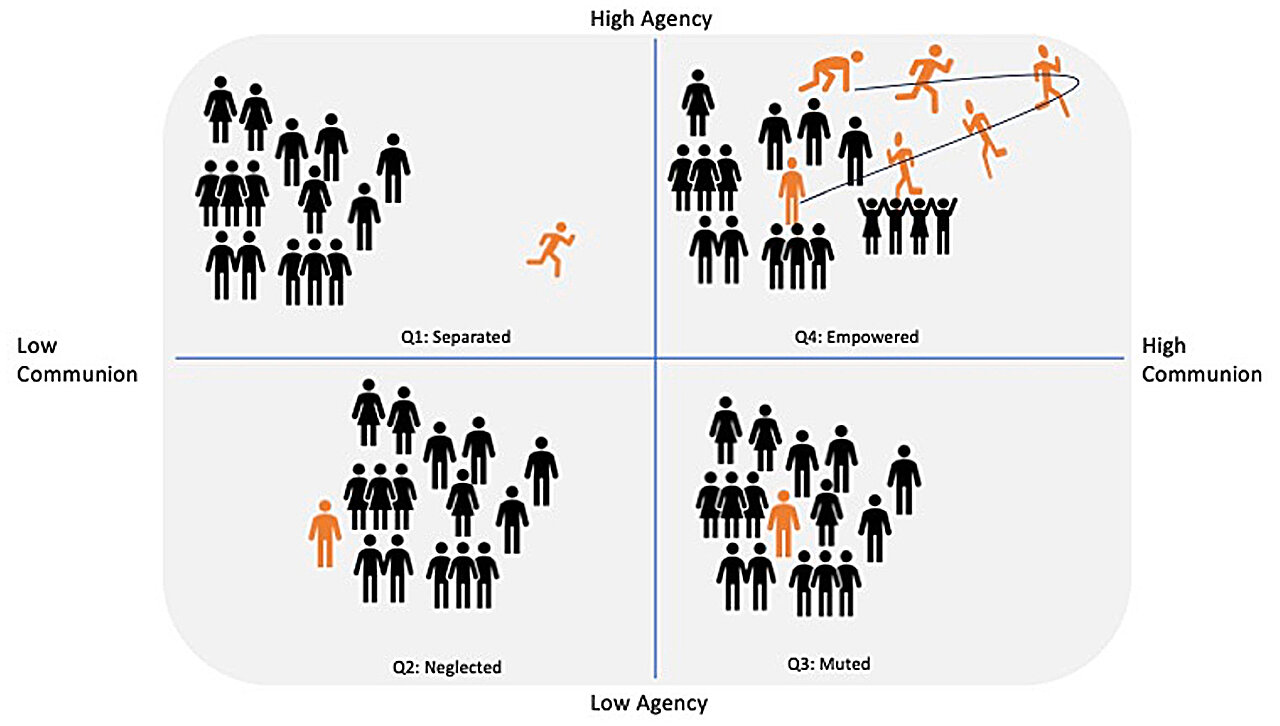

While the holiday season typically brings joy, cheer and celebration, a significant number of people feel lonely.
Previous studies and explanations for loneliness have only looked at people’s need to belong and have warm relations. But the story is a little more complicated, according to a new University of Michigan study published in Frontiers in Social Psychology.
The research focused on two needs that social relations help to fulfill: communion, which drives individuals to connect with other people, fitting in and getting along, capturing qualities essential to establishing and maintaining social relationships (being friendly, helpful, trustworthy and moral); and agency, which is another need all individuals have—to lead their lives on their own terms and strive for personally meaningful goals.
The data came from the Irish Longitudinal Study on Aging, conducted between October 2009 to February 2011. A sample of 8,500 people, ages 49–80, disclosed their economic circumstances, health, relationships, employment and other variables.
Study participants were asked about their levels of loneliness, as well as their relationship support/strain (communion) and how much participants judged they were in charge of and had choice in their lives (agency).
Oscar Ybarra, the study’s lead author and U-M psychology professor emeritus, and Google researcher Todd Chan created a four-prototype model:
- Empowered (family and friends are supportive, and also cultivate the individual’s choice and autonomy)
- Separated (family and friends may be moderately supportive, but the individual is made to focus on being self-sufficient)
- Neglected (lack of warm relations, and also feeling little choice and autonomy in one’s life)
- Muted (relationships may be supportive, but the individual experiences little choice and personal control)
People are divided into these categories based on high and low levels of communion and agency—the extent to which these needs are being met. Loneliness was as a function of both the level of communion and agency one experiences in their relationships, the study indicated.
Those who were neglected (low on both agency and communion) had the highest loneliness scores. Those who were empowered (those high on both agency and communion) produced the lowest loneliness scores.
“Loneliness has always been explained as a deficit in the satisfaction of one’s communion or relational needs,” Ybarra said. “But in addition to communion needs, individuals also need agency, personal control and choice, and not meeting this need should also affect experienced loneliness.”
What should people do if they believe someone in their social circle seems lonely? Try to be warm and supportive to that individual, but in a way that goes beyond hugs. Help them understand they have some control and choice in their lives, Ybarra said.
“That is, support that propels people and also takes into account their need to be their own person,” he said.
This is not the same as pushing them away to be self-sufficient, but a blend of being warm plus acknowledging their individual needs, wishes, and potential, he added.
“It’s also letting them know they have a place to come back to when they get a little bruised by life,” Ybarra said.
More information:
Oscar Ybarra et al, The s(quad) model, a pattern approach for understanding the individual and their social network relations: application to loneliness, Frontiers in Social Psychology (2023). DOI: 10.3389/frsps.2023.1278671
Provided by
University of Michigan
Citation:
Feeling lonely? Chances are you lost both social support, personal control (2023, December 13)
retrieved 13 December 2023
from https://phys.org/news/2023-12-lonely-chances-lost-social-personal.html
This document is subject to copyright. Apart from any fair dealing for the purpose of private study or research, no
part may be reproduced without the written permission. The content is provided for information purposes only.





